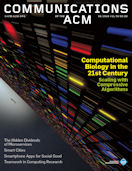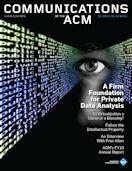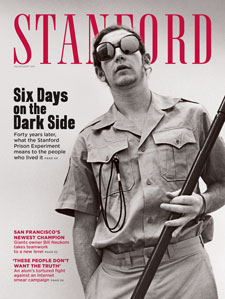When Success Sours (Stanford)
CAROL DWECK’S RESEARCH has made the Stanford psychologist a household name among parents and teachers. Since the 2006 publication of her book Mindset: The New Psychology of Success(and Stanford’s March/April 2007 cover story), countless articles and books have featured her ideas about helping children and adults learn. The video of Dweck’s 2014 TEDx talk on “growth…
Reinforcement Renaissance (Communications of the ACM)
Each time DeepMind has announced an amazing accomplishment in game-playing computers in recent months, people have taken notice. First, the Google-owned, London-based artificial intelligence (AI) research center wowed the world with a computer program that had taught itself to play nearly 50 different 1980s-era Atari games—from Pong and Breakout to Pac-Man, Space Invaders, Boxing, and more—using…
Making Books: The Bestseller Lists (Washington Post Book World)
On Sunday, Oct. 3, when the New York Times Book Review premiered its redesigned bestseller pages, Patricia Cornwell’s Trace topped the fiction list, and Kitty Kelley’s The Family was #1 in nonfiction. The fine print below the table explained that the rankings reflected sales for the week ending Sept. 18 — a period about two…
Today.com, ‘Drop-shippers’ reveal the hard work behind the legitimate work-from-home model
‘Drop-shippers’ reveal the hard work behind the legitimate work-from-home model
In Defense of the Middleman (FastCompany.com)
Back in 1995, when Netscape was the hottest company in the Valley and Bill Gates a fearsome force in software, eggheads and cranks alike predicted that the “World Wide Web” connecting us would soon do away with middlemen. Gates foresaw a world of “friction-free capitalism,” one in which the Internet itself would become the only…
India’s Elephantine Effort (Communications of the ACM)
Despite India’s economic boom, more than a third of the country remains impoverished, with 456 million people subsisting on less than $1.25 per day, according to the most recent World Bank figures. Government subsidies on everything from food to fuel have tried to spread the nation’s wealth, but rampant corruption has made the redistribution pipeline…
Is Koko’s Clock Ticking? (Stanford)
Last February, for $19.95 each, the Gorilla Foundation was selling a limited stock of “Koko Plush.” The 12-inch-tall stuffies were inspired by the way Koko the Gorilla looked in 1972. That’s when Penny Patterson, a graduate student in developmental psychology, began teaching Koko sign language, an unprecedented project that drew international attention. Born in the…
It’s Who You Know—Or Don’t (Stanford)
Nothing demonstrates the wildfire spread of online social networks such as MySpace and Facebook better than the experience 73 Stanford students had last fall. They were enrolled in the computer science course Creating Engaging Web Applications Using Metrics and Learning on Facebook—and did they ever engage. At a public session held at the Arrillaga Alumni…
And Camera Makes Three (Stanford)
“What a perfect day,” my husband announced as Saturday morning dawned gray and gloomy. That afternoon our friend was to be married in Memorial Church, and while I worried that it might rain on her wedding, my husband was delighted by the cloudy sky, which he calls “the mother of all Soft Boxes.” Married to…
- « Previous
- 1
- 2
- 3
- 4
- Next »















